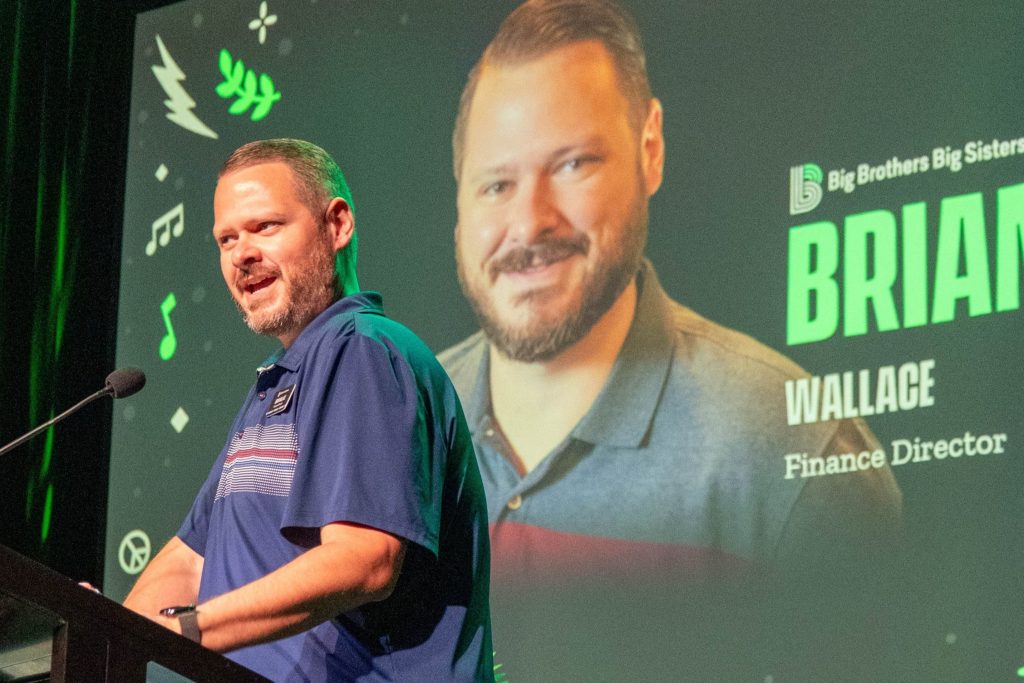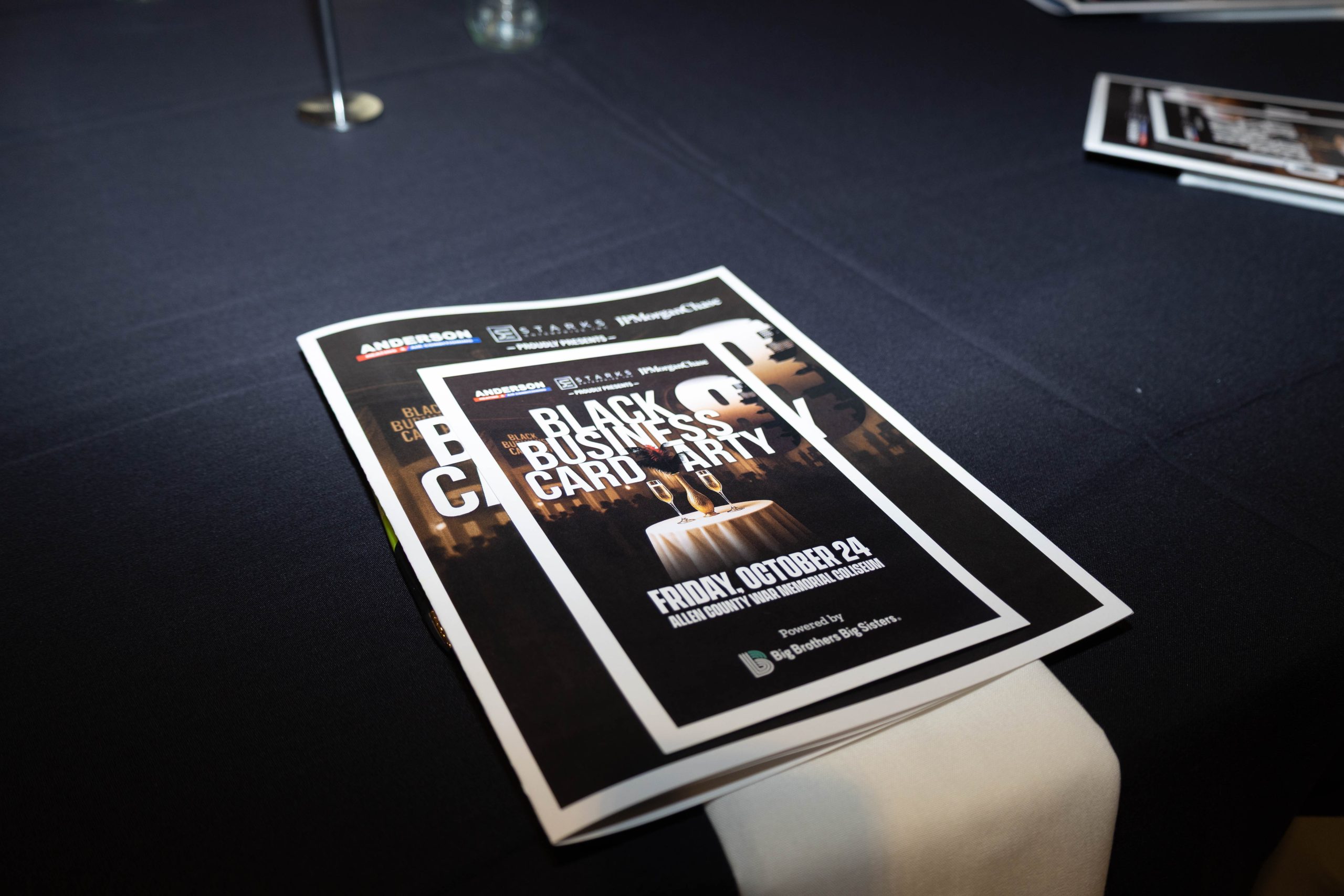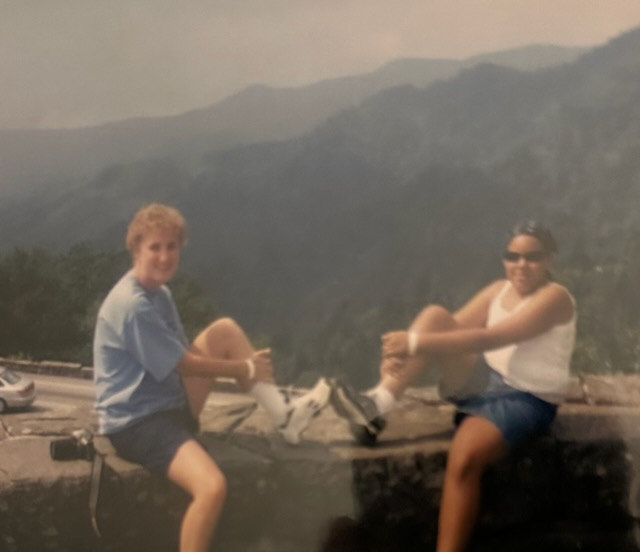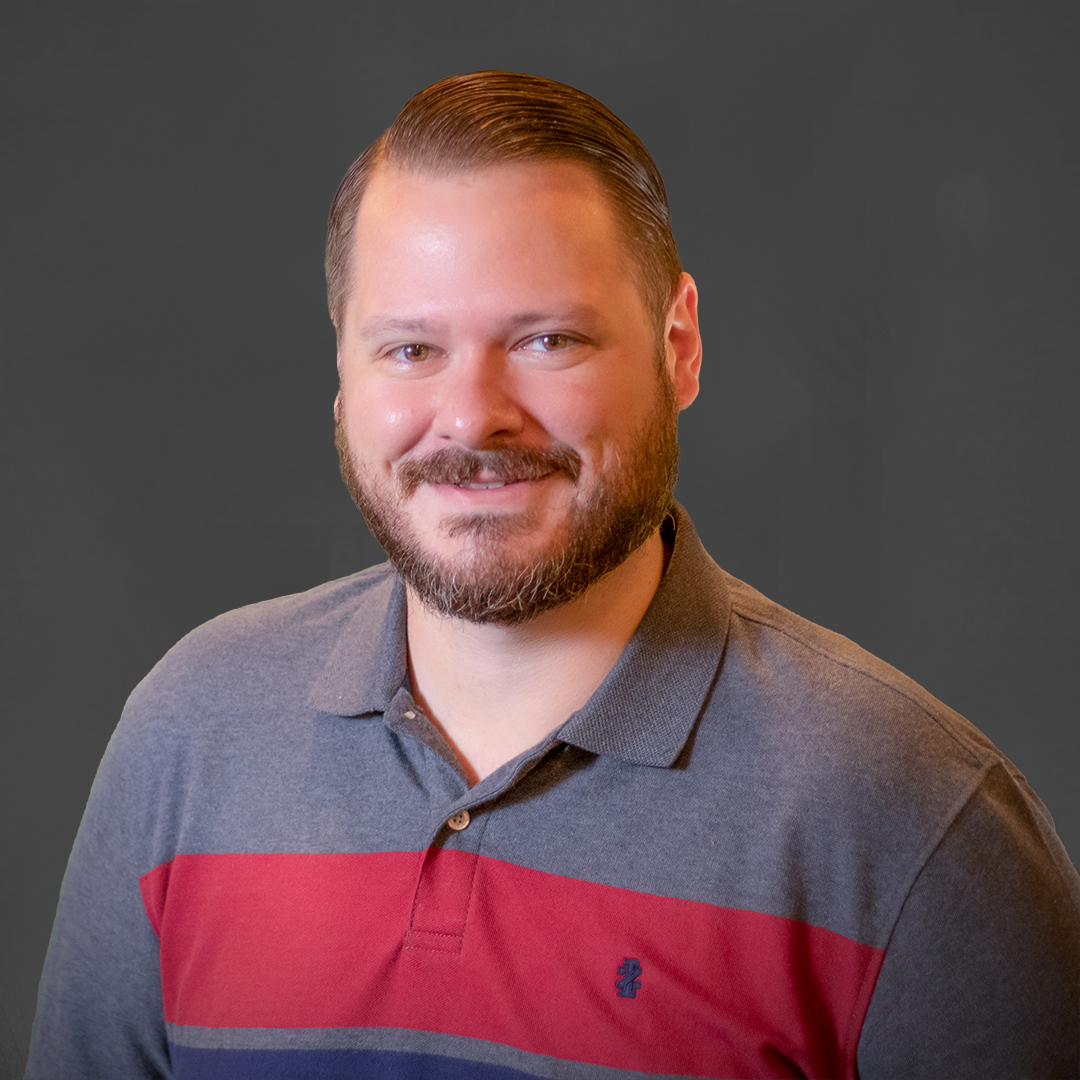
Staff Spotlight: Brian Wallace
Today, we’d like to shine a special spotlight on Brian Wallace, the Finance Director here at BBBS. He has served Big Brothers Big Sisters with his signature adaptability and diligent work ethic for 10 years, working behind the scenes to make our programs the best they can be!
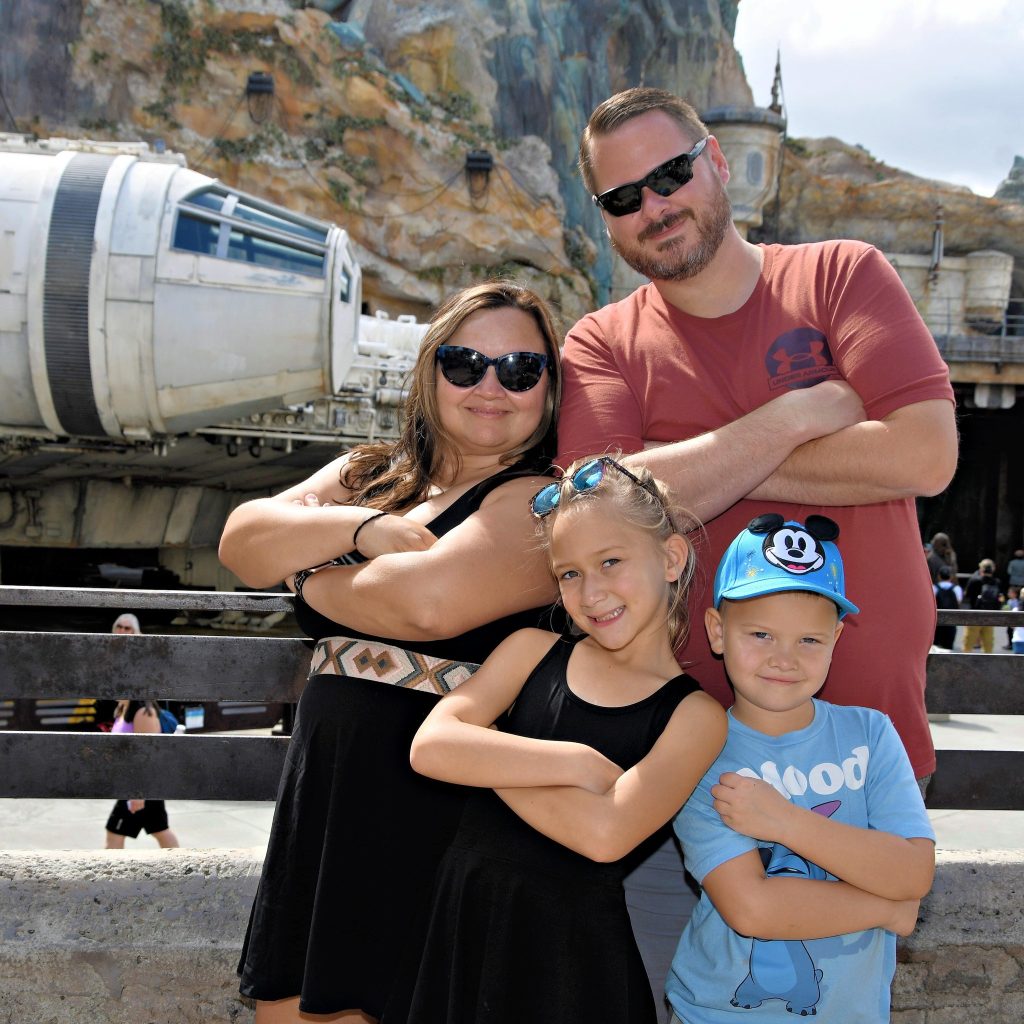
The scent of brisket smoking on the grill, a campfire blazing, the roar of the crowd at a Cubs game—a day filled with one of these sounds like music to Brian’s ears. This father’s schedule outside of work quickly fills with football and baseball games to attend and dance recitals to watch, as his two children keep busy. But when he gets a chance, his free time is devoted to hanging out with friends and family, watching ball games, and collecting sports memorabilia (Colts and Cubs!). He also loves the opportunity to visit Florida, and more recently, he’s been to quite a few Post Malone concerts with his wife and daughter.
After attending New Haven Middle School and High School (where he met his middle school sweetheart and now-wife), Brian took his love of data, numbers, and business to Purdue Fort Wayne. His first accounting job out of college was as Bookkeeper for Big Brothers Big Sisters. Gradually, this bookkeeper took on more and more responsibilities, working his way to the Finance Director he is today, ten years later. However, Brian’s tasks extend beyond just finance. For many years, he has had a role in the HR and IT departments, handling issues that arise in day-to-day workplace operations.
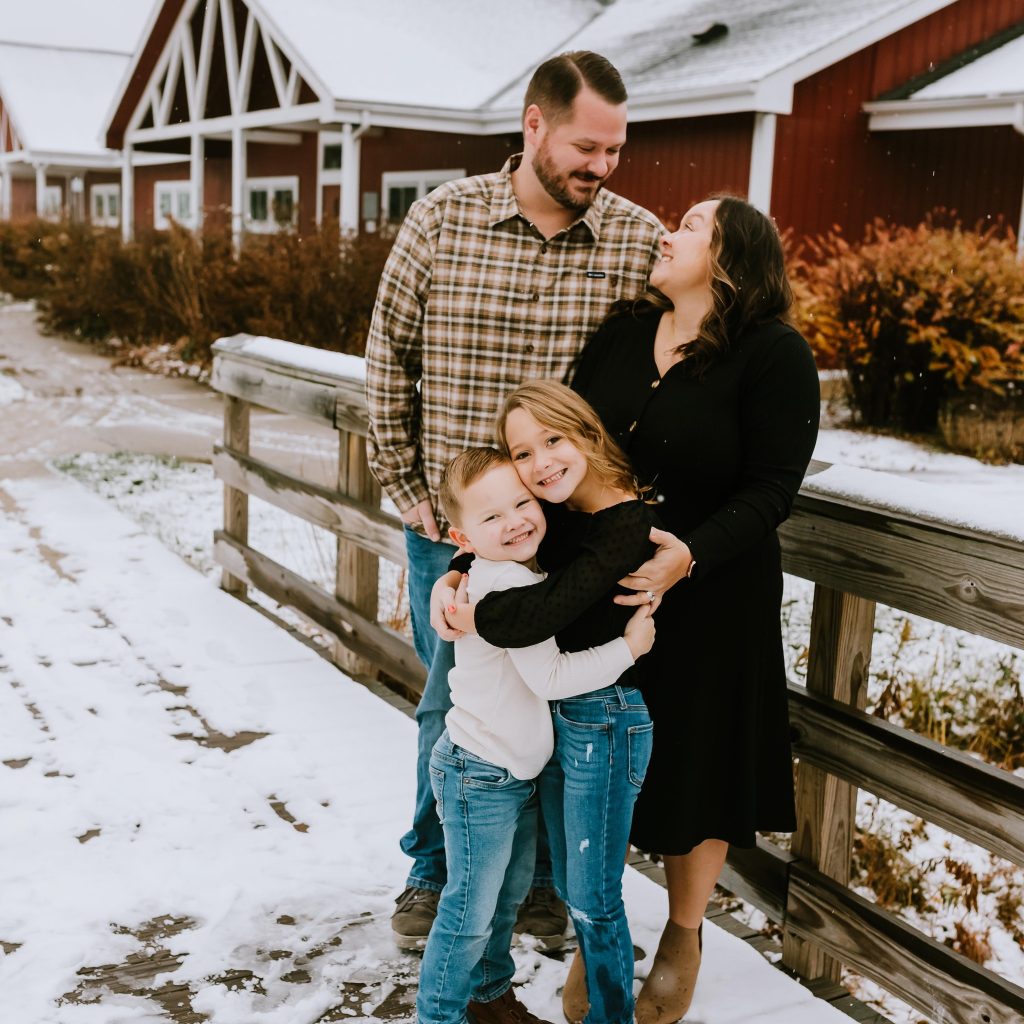
Brian enjoys cross-departmental work, finding it to be one of the most enjoyable and unique parts of his job.
What does a typical week look like for you?
Brian: As part of a nonprofit, you do wear a lot of "hats," so you get pulled in a lot of different directions. One day, I might be working on a finance-related issue, and then I might be hopping into an IT issue or an HR issue. I also do a lot of data work. One thing they see on the back end is data on how the programs are performing, and so sometimes there are conversations about that—where we might need to go with our programs…
That's the part I enjoy the most: looking at data and trying to figure out how we can use that to our advantage. I feel like we're pretty sophisticated here at the agency, where we really use a lot of data to tell us where to go.
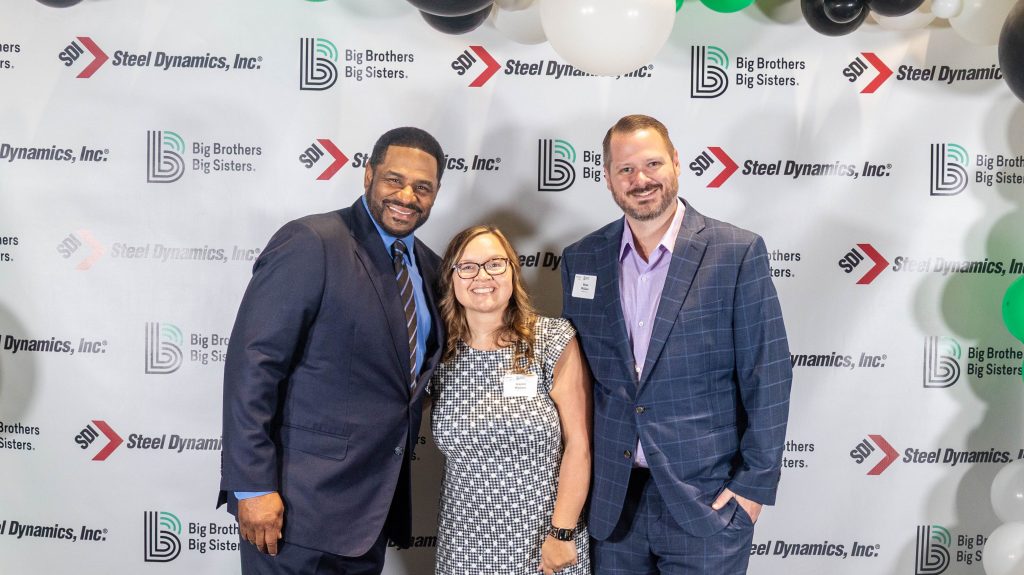
Much of Brian’s contributions to the agency are on the back end of things—whether looking into government funding, requirements of grants, or getting the proper paperwork in order. As a manager, he also confirms that staff stay diligent, and he addresses their concerns. Although he doesn’t work with the kids directly, knowing that the funding he applies for and the programs he creates budgets for help the youth in our programs has kept him here for a decade now.
Over 10 years, things have changed a lot. As you have had to learn new things, what's a lesson that you've learned on the job?
Brian: I help manage our HR department, our IT department, and I work with our finances…Documentation is key. If you don't have it, it doesn't exist. So, I think the key thing that we need on our side is making sure we have that documentation.
Do you have any advice for people who are working in finance or in a managerial? Or any advice for your younger self?
Brian: Ask questions. Don't be afraid to ask questions. Clarifying questions are one of those things we've kind of lived by over the years. Make sure to ask any of those questions that you have, and don't hesitate to stop the conversation and ask for that clarity in real time in the meeting. Sometimes, some people just always wait until afterwards, or they're like, “Dang, I should have asked that in real time,” and they try to follow up after the fact. But, doing it in real time can really get that clarity that you might be looking for.
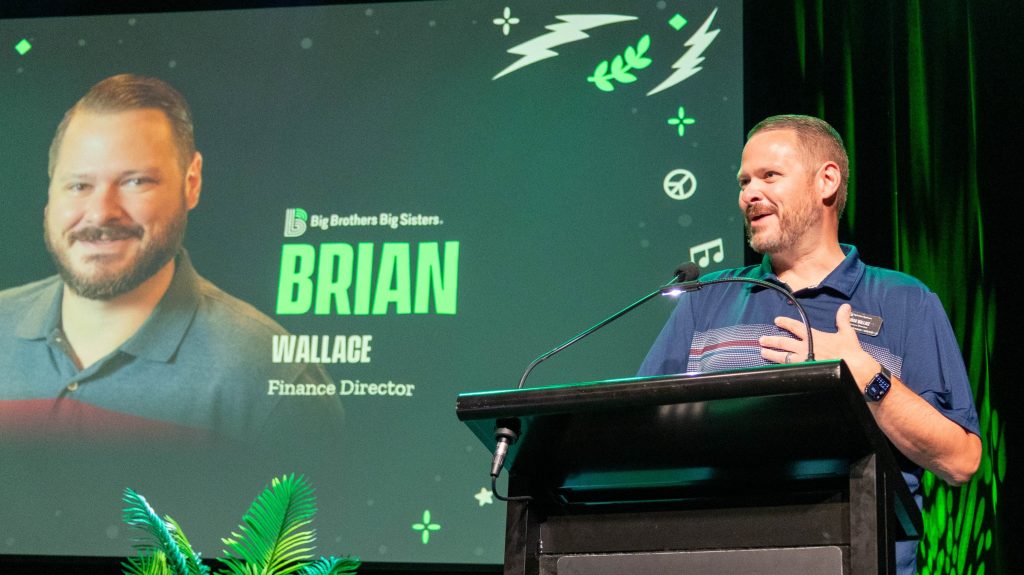
However, every so often, Brian gets a chance to interact with the Littles in our programs directly. When a Little Brother had the opportunity to use grant funding to assist in buying a car, Brian got to be there to guide him. Another time, he got to chat with a first-gen college student in our program. As the first generation of his own family to go to college, it was great to relate and share his experience. He’s also presented the importance of creating and managing a monthly budget to the Littles in our Big Futures program.
Some highs and lows come with financial work. Time and effort might go into finding funding that falls through. Then, other great opportunities may come about to receive financial support. This seasoned and dedicated Financial Director notes that the research and endeavors must be continuous. Getting to witness first-hand the impact of his work on these kids fuels Brian’s desire to keep working harder. He also has his own mentor whom he has modeled much of his work ethic after.
Do you have a mentor in your own life?
Brian: I think my father's probably my biggest mentor—just seeing him as a kid, the way he worked, the work that he would put in. He would rotate sometimes between the second and first shift, depending on the job that he was doing at the time, then bid on jobs…Sometimes we might not see him as much, but just seeing the hard work that he put in really has kind of framed the way I go about my work as well.
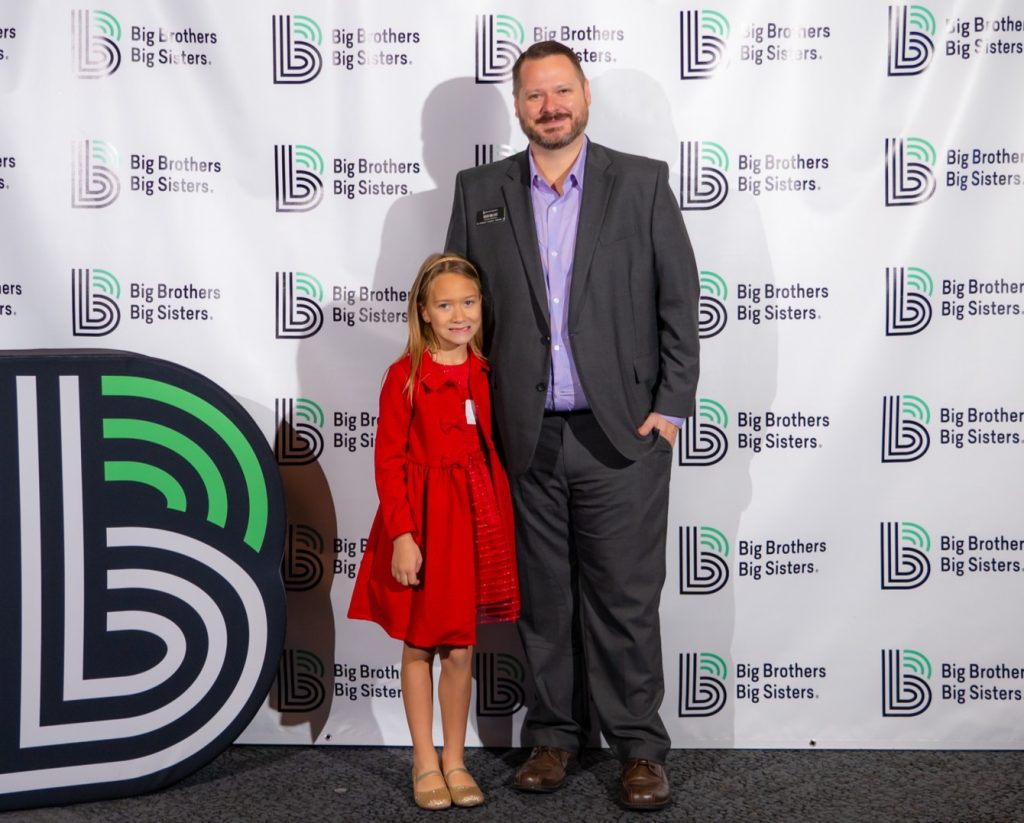
Another way Brian directly impacts kids in our program is through volunteering his time to Real Men Read! Three years ago, he began reading to a 2nd-grade classroom in a nearby elementary school. When he walks in the door, faces immediately light up, and questions are thrown his way. Having a classroom of kids who all know his name and are excited to see him again has been a joy.
What has been your favorite memory from being a Real Men Reader?
Brian: After the current session that I just completed, the kids in the class all wrote me a handwritten letter telling me what they enjoy most about it, and the common theme that kept popping up was that I listened to them. I allowed them to talk. I didn't cut them off, and I just listened to them talk and answer any questions that I may have asked them. So, it was really nice to see those letters come through, and I shared that with my friends and family…
Why I really enjoy the program is that it doesn't take a whole lot of time to do. It's 45 minutes to an hour out of my morning once a month to go there and read to those kids. And like I said, just the enjoyment that you see in their faces when you come, it makes it well worth the time.
Thank you, Brian, for all the work you do behind the scenes for the agency and for taking the time to volunteer!
